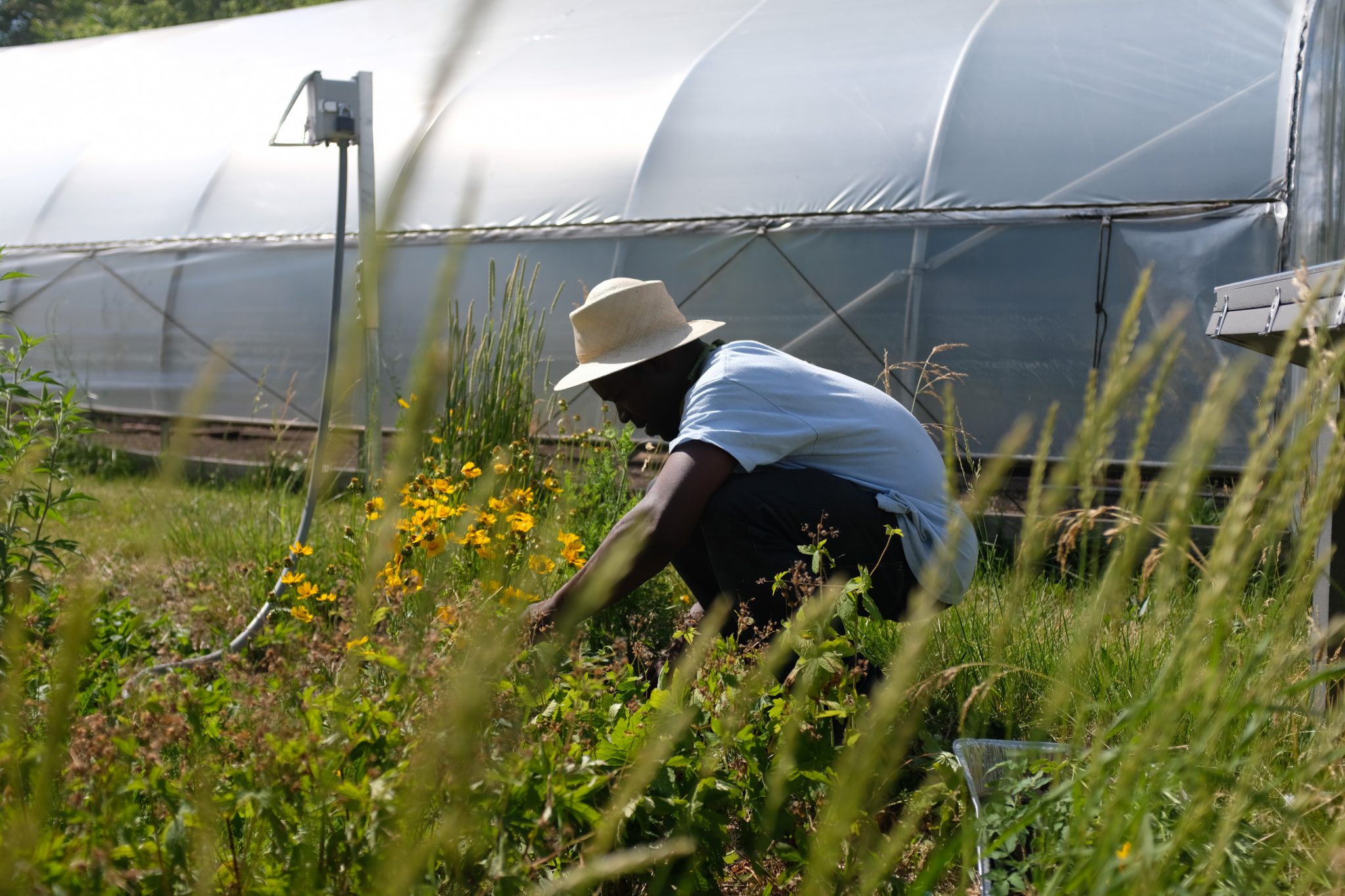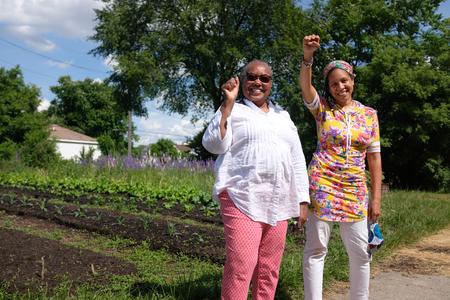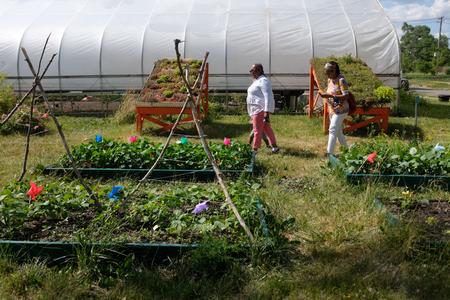Fund For Detroit’s Black Farmers Raises Thousands To Generate More Land Ownership
Three Detroit community organizations launched a GoFundMe with a goal of raising $5,000 for Black farmers. A week later, they’ve raised over $31,000 and counting.

As the country continues to focus on both police brutality and the myriad ways people of color are put at a systemic disadvantage in this country, a trio of urban gardening organizations are turning their attention to the issue of Black land ownership and sovereignty.
In Detroit, many Black farmers face increased barriers to land ownership. On Juneteenth, the Detroit Black Community Food Security Network, Oakland Avenue Urban Farm and Keep Growing Detroit partnered to create a GoFundMe with the goal of raising $5,000 to support Black farmers in Detroit to purchase the land they are currently farming or plan to farm on.
As of a week later, they’ve raised a staggering $31,000 and counting.
Click the audio player above to hear two community activists discuss Black farming initiatives in Detroit

Jerry Hebron is the executive director of the Oakland Avenue Urban Farm. She says there is a historical significance to factor in when talking about Black farmers in Detroit.
“Many of the people who lived in Black Bottom came from the South,” says Hebron. “They had a farming background. They grew their own food and shopped for staples like flour, milk, meat and things like that and so everybody in my family had a garden that grew something and in this community [on Oakland Avenue — same thing. That’s a part of the history and that’s also a part of our culture.”
With the current global pandemic, history has been repeating itself with a renewed interest in farming and gardening during the pandemic.
“With COVID-19 we saw the break in the food chain and so the conversation now is more people are going back to ‘I gotta grow something,'” says Hebron, “so they are going back to planting some of the things they love to eat.”
Obstacles To Land Ownership Are Real
The farm’s current footprint is six acres, but it was not easy for Oakland Avenue Urban Farm to get to the point where they owned that land. According to Hebron, before Oakland Avenue Urban Farm started caring for the land, a local church took care of 10 lots that it didn’t own. In 2000, that church entered into a contract with the city of Detroit to purchase the lots. For 15 years, however, the city refused to close on the deal, thinking there was a better use for the land.
“I just kept saying, ‘we are going to keep doing this’… this land belongs to us,” says Hebron. And now, it does.
This type of land insecurity was one of the catalysts for the creation of the Detroit Black Community Food Security Network (DBCFSN). The DBCFSN was formed in 2006 in reaction to the lack of food and land security that so many Detroiters like Hebron were and, in some places, still are experiencing. Board Member Erin Bevel says that food and land security are so intertwined when it comes to creating viable food sources for communities throughout the city, pointing out a legacy of discriminatory lending policies that have made it harder for people of color to acquire land.
Those discriminatory processes, she says, is why the GoFundMe effort was undertaken last week.
“This is about self-determination. We have to be able to support our own communities regardless of what the city is going to say and regardless of banks and credit and racial discrimination in lending practices,” says Bevel. “We are sitting here having this conversation in 2020 and in 1900 most of the Black farmers then didn’t own the land that they were farming on. Back then it was sharecropping now it’s discriminatory lending practices.”

What Will the Black Farmer Land Fund Solve?
Bevel’s hope is that creating an application process to distribute shares of the funding will capture a picture of how many people across the city are having issues acquiring the land they are farming on.
Bevel says the amount of money that will go to each qualifying applicant will depend on the individual situation. “We don’t necessarily know what everyone’s needs are but we also hope to use the application process to figure that out,” says Bevel, adding, “All the funds will go directly to the farmers when they have some kind of purchase agreement or some other proof.”
Ultimately, Hebron sees this land ownership battle as one piece of a larger journey through a life that’s been embedded with systemic racism. “I do think that we can begin to rebuild part of that legacy through the ownership. The ownership is power, that’s why it was important for us,” says Hebron.
She goes on to explain that aside from ownership, it’s also important to be able to have a voice in one’s own community. “Looking at my neighborhood here, you’ll see there’s a vast amount of vacancy… we have no grocery stores where people can get nutritious food. Not all the land that’s vacant here should be for housing, not all should be for food… we should have a say in what we want our neighborhood to look like and what we want in our neighborhood.”
Trusted, accurate, up-to-date
WDET is here to keep you informed on essential information, news and resources related to COVID-19.
This is a stressful, insecure time for many. So it’s more important than ever for you, our listeners and readers, who are able to donate to keep supporting WDET’s mission. Please make a gift today.
